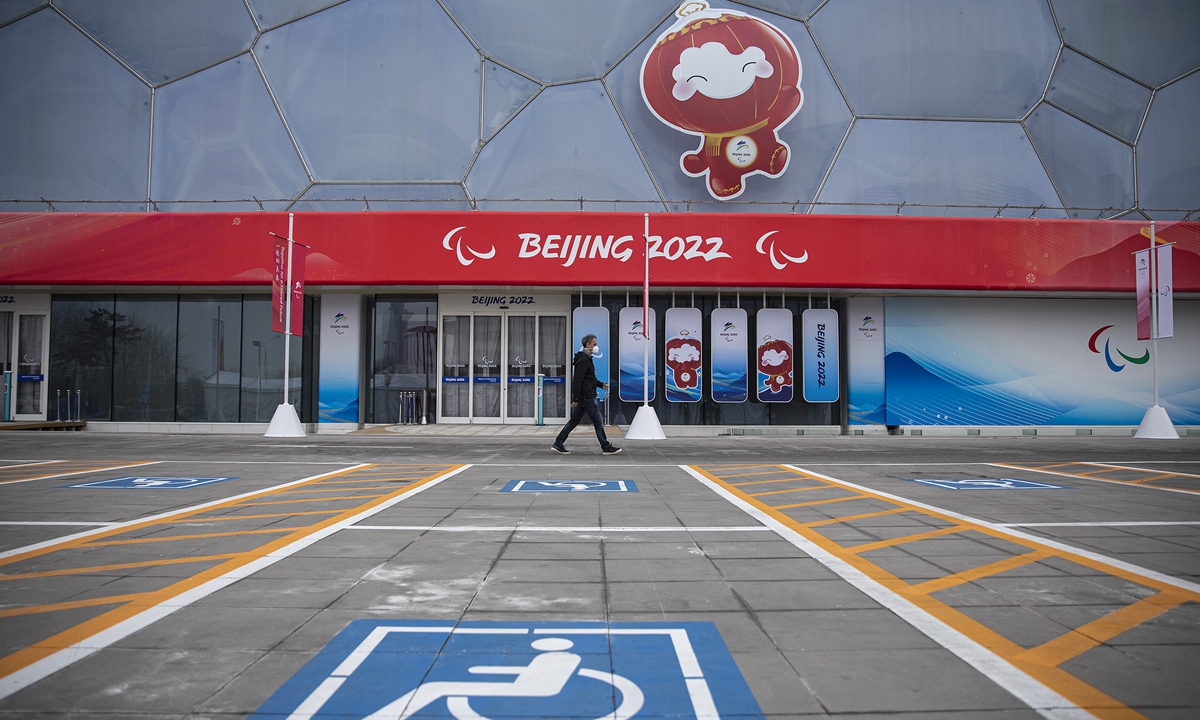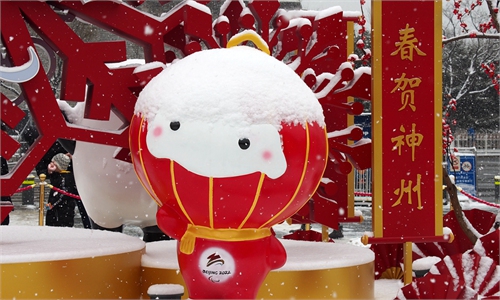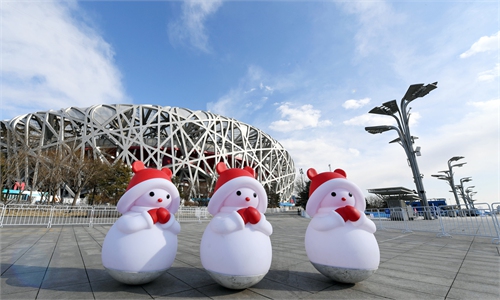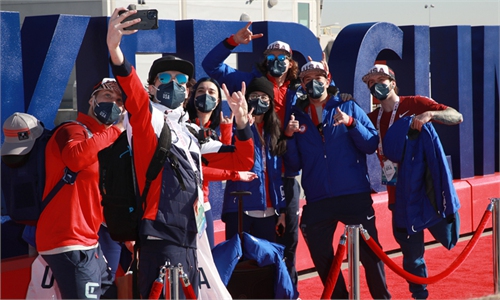Venues, Paralympic Villages, transportation and medical services speed up transition for Paralympic Winter Games

A man walks in front of a general view of the National Aquatics Center on February 28, 2022 in Beijing, China.Photo: VCG
With just three days to go until the start of the Paralympic Winter Games, the competition venues, transportation systems, the Paralympic Villages and medical services are speeding the transition from the Winter Olympics for a streamlined, safe and green Winter Paralympics.
International Paralympic Committee (IPC) President Andrew Parsons praised China's efforts in terms of accessibility for people with disabilities in an exclusive interview with the Global Times on Monday. He said that China has made 300,000 facilities barrier-free in the last few years, which showed that China had taken the opportunities of the Games to make China a more accessible country and all the venues for the Games are very accessible.
"When it comes to accessibility, we could not be happier with China and with the organizers," Parsons said. Officials from the Yanqing Winter Paralympic Village told the Global Times that as of Monday at noon, 432 people from 28 countries and regions and four officials from the IPC had moved into the village. It's estimated that a total of 512 people including 180 athletes will move into the village.
As one of the five major competition venues for the Winter Paralympic Games, the National Alpine Skiing Centre in Beijing's Yanqing district will produce the largest number of gold medals. The venue is at the final stage of transition to a Winter Paralympic venue, and 22 barrier-free elevators and 44 barrier-free restrooms are in operation, according to the venue.
Meanwhile, the venue operating team is keeping up with regular patrols to the barrier-free facilities, security and electric power of the venue. The venue has also set up repair stations for wheelchairs and prosthetic devices as well as wheelchair storage stations.
To host a green, inclusive, open and clean Games, the Winter Paralympics will continue use hydrogen-fueled vehicles for its three competition zones in Beijing, Yanqing and Zhangjiakou.
The Global Times learned from the Beijing SinoHytec Co, one of China's leading enterprises that focuses on the study of hydrogen fuel cell engines, that around 400 hydrogen-powered vehicles are expected to be used at three competition zones.
They could provide services for athletes, journalists and other delegation members.
The Zhangjiakou competition zone's public service system launched on Friday, and the bus operators converted the hydrogen-powered vehicles to better serve people with disabilities, including lowering the floors of 88 buses, which could allow them to be used by 72 wheelchair athletes, according to the company.
According to the Xinhua News Agency, the podium has been converted into a ramp from the previous stairs for the Winter Olympics to provide convenience for wheelchair athletes at the National Biathlon Centre in Zhangjiakou, and the media center provides barrier-free seats for wheelchair journalists.
There are also introductions and maps of the center in Braille at the entrance of the center.
Medical institutions have also finished the transition with medical staff equipped with Paralympic registration cards and computers changed into Paralympic diagnostic systems, said Wang Xiaodong, a doctor for the Winter Paralympic Village, the Health News reported.
From the transition period from the end of February to Friday, the medical team at the Zhangjiakou competition zone received training and conducted exercises for the Paralympics.





